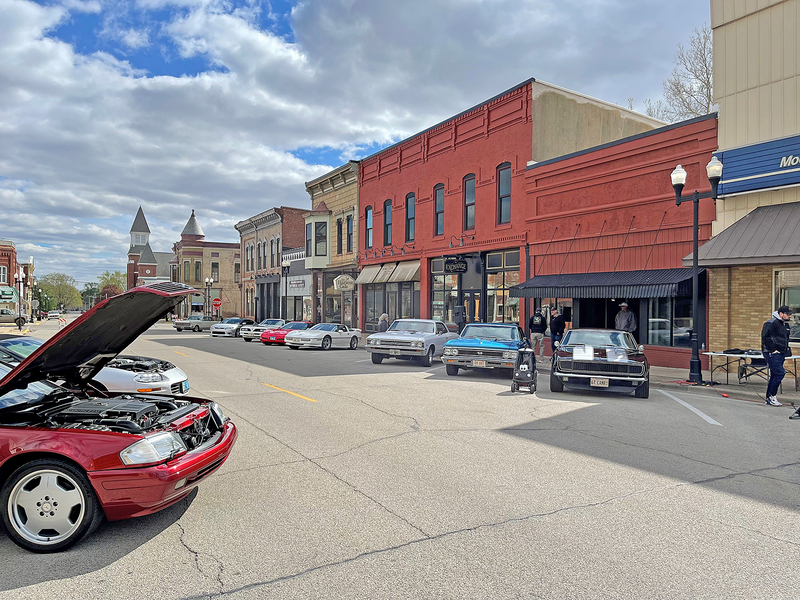Ichabod’s Apothecary is set to host a Magical Easter Garden Adventure on April 12th.

The W. D. Boyce Council celebrated 115 incredible years of the Boy Scouts of America, and its new identity as Scouting America, at a special ribbon cutting ceremony and open house with the Peoria Area Chamber of Commerce on Feb. 7, 2025.

Hy-Vee announces today that it is partnering with the Caitlin Clark Foundation to support childhood nutrition by raising funds for local food banks across the Midwest in March.

Scouts BSA Troop 178’s annual spaghetti dinner and silent auction fundraiser will be held on Jan. 25, 2025, from 4 to 8 p.m., at the Morton United Methodist Church, 420 N. Tennessee Ave., Morton. Tickets are available at the door: $10 per person for adults, $7 for seniors (60+) and children, $33 for a family of up to five.

Yoga may be one of the oldest practices in human history to focus on a person’s happiness - a person’s physical and emotional well-being. In the United States it is estimated that 36 million adults practice yoga on a regular basis. They are likely to practice one of a couple kinds of yoga that derive from Vedic yoga and involve 12 basic postures, with names like cow, cobra, or fish. These kinds of yoga will also involve teaching deep breathing patterns along with a focus on being present and mindful. Luckily for Mackinaw area residents, we have an expert on the subject: Julie Rhoades of Yoga4Life, located at 107 South Main Street in Mackinaw.

For this week’s Business Spotlight, I was able to speak with President of KDJ Sales and Services Inc, Dustin Schmidgall, and get a peek into the history of his company and what the future may look like moving forward. Started by Keith Schmidgall in Armington IL in 1978, the company originally focused on residential plumbing, electrical, and HVAC. After about 7 years, the decision was made to move the company to Mackinaw in 1985 and switch focus to doing electrical work on grain elevators. In 1987, the company moved to the Mackinaw Industrial Park, where they remain today. In 1995, KDJ added to their list of services when they added automation and control systems development.

Opening up on April 9, 2022, the 3:7 Garden Shed is a gardening shop owned by Jeff and Chris Litwiller but you may also see their four daughters around the shed helping out. The 3:7 Garden Shed took the place of the Hopedale Garden Shop after the owner decided to sell the business to Jeff and Chris Litwiller. Before this, the business originated as Slager Lawn Service in the 1980s. The shed’s name comes from 1 Corinthians 3:7; “Neither the one who plants nor the one who waters is anything, but only God, who makes things grow”.

With 10 years of experience in fire equipment and the fire safety industry, Fred Lawrence, along with his wife Emily, started Fred Lawrence and Sons Fire Equipment in Pekin in 2010. Business came quickly and before long, the decision was made to incorporate the business to its current name F.L. Sons Fire Equipment Inc. in 2015. Fred and Emily began hiring employees and realized that their current situation: one work truck, a very small 10’x15’ garage, and a spare room in their home acting as an office - just wasn’t going to meet their needs. So, the Lawrence family started to look elsewhere, knowing that they would need a home for them and their 2 sons, along with a separate building to run their business out of.
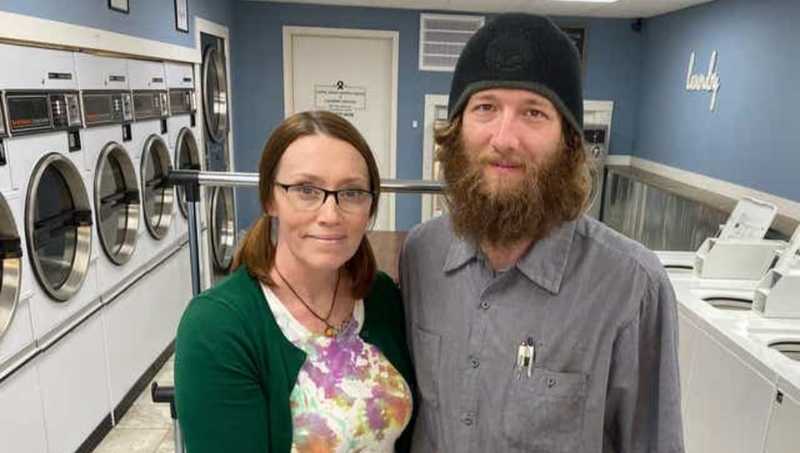
Carol Ann’s Worsh House is a laundromat located on 109 SW Arch Street in Atlanta, Illinois. This business was opened just a little over one year ago on account of the small town needing a place to wash or “worsh” their clothes after the previous laundromat owner passed away. Jared and Brandy Mattingly saw an opportunity to reopen the facility and stepped up to the task! The name “Carol Ann’s Worsh House” is named in honor of Jared’s mother, the late Carol Ann Mattingly. Both Jared and Brandy’s mothers used to “worsh” everything.

Many recent Olympia High School grads are going on to pursue athletics in college. From a class of only 86 students, 5 females and 4 males will be continuing their athletic careers. Most of them will be staying right here in Illinois, with just a few moving over to the bordering states.

The sports season for OHS in the 2021-2022 school year concluded on Friday. Friday was the state track & field meet for our boys' team. The boys competed in the prelims on Friday but did not end up making it to the finals on Saturday. The qualifying 3200-meter team consisted of Anthony Ragland, Cooper Phillips, Owen Dare, and Brad Schardan. Owen and Brad wanted to save their energy for the 800 so the alternates, Logan Demling and Caden Clark ran instead. The team ran an 8:42.37 relay. Then, Brad Schardan ran the 800-meters at a personal best time of 2:00.20. Owen Dare was right behind him with a time of 2:00.26. Then, Keagan Uphoff did the 300-meter hurdles and had a time of 44.40. With Keagan being just a sophomore, he has a lot more potential to advance further in the coming years. He is off to a great start and ready for more!

OHS Boys Track & Field athletes (L-R): Brad Schardan, Owen Dare, Anthony Ragland, and Cooper Phillips.
This was regional week for the softball and baseball teams! To begin, the baseball team played Clinton on Monday night, coming away with a 3-2 win. This advanced them to play Pontiac on Thursday. The Spartans were not as good as Pontiac’s baseball team and lost 1-14. Pontiac is now going to the regional championship game on Monday vs Tremont. Olympia High School hosted all these regional baseball games. The high school baseball season has now ended and the boys are ready to play travel ball. The baseball program is grateful for finally having a full season that was very fun and memorable, too!

Post-season for Olympia High School athletics is coming into full gear. Just this week Girls Track and Field competed in their IHSA Sectional Meet. Anna Beiber qualified for State at the meet with a time of 2:21.68, just 2 seconds under the state qualifying time. Melissa Bieber just barely missed the qualifying time by .29 seconds with a 47.98 in the 300 hurdles, which is less than a second off the school record. Boys Track and Field will compete in their Sectional this coming week on the 18th.

With summertime approaching, there is nothing more fun than sitting around a fire pit with your friends or family! Well, maybe a tropical trip! Fire pits are a great way to add some fun to a yard! With a little hard work and some elbow grease, you’ll have one in no time. We put one in at our last home and loved it, I can’t wait to do it again!
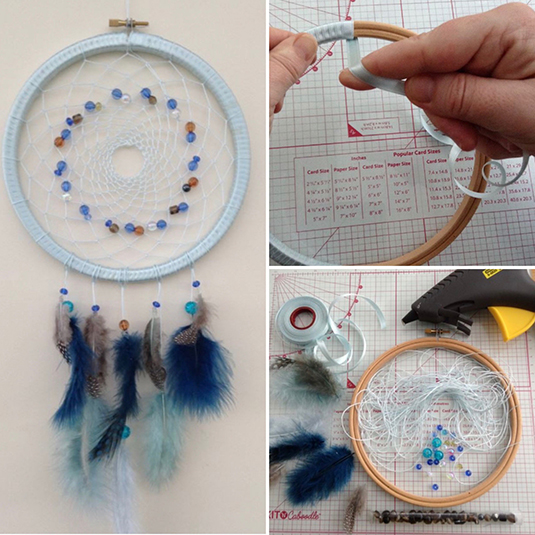
In Native American culture, dream catchers were believed to catch and trap bad dreams, whilst allowing good dream to pass through the spider-web design, and drift into the heads of the children that lie sleeping below them. Nowadays, dreamcatchers come in many shapes and sizes, and are an incredibly popular bedroom decor choice! If you’re ready for some sweet dreams, why not learn how to make a dreamcatcher?

Sometimes you are in the middle of a project and realize you need something else! This happened to me when I was creating my back garden scape. I placed my new Adirondack chairs in there place. They were a perfect fit, if the ground didn’t slope down in the back! I knew I needed to make an elevated bed for them. I had recently found a ton of old pavers in the yard and knew this was the spot for them.
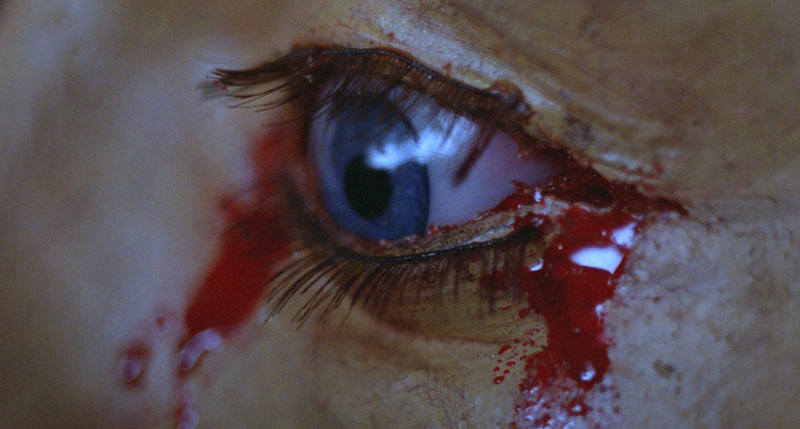
The Visitor [Limited Edition] (Stridulum)
When a movie won’t explain itself, not in an attempt to be mysterious, but because it simply has too much going on, then what happens? THE VISITOR begins as if it assumes we already know how their world works, though those rules seem to be made up as it goes along. The film cares less about a focused story than about keeping us disoriented, and this dedication is at once its best quality and its biggest problem.
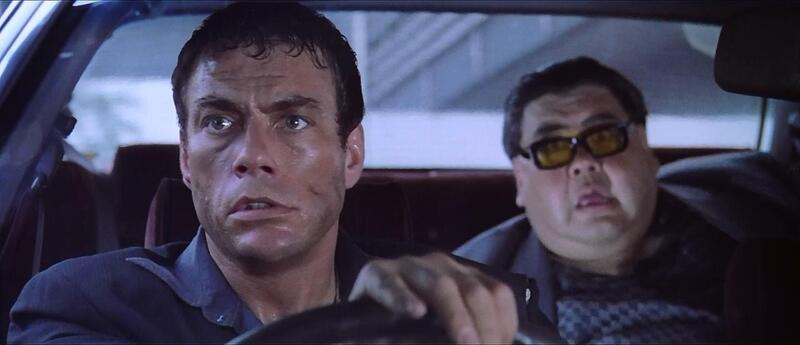
Knock Off (Collector's Edition)
What happens when an action movie stops trying to make sense? KNOCK OFF decides to dive into the shallow end and challenge you to either give in to the craziness or just scratch your head and wonder what you’re watching, This isn’t a film that wants to let anyone get comfortable and acclimate to its world; it goes quickly, is loud, and piles on the absurdity with the confidence of a director who figures you’ll keep up or be left behind.
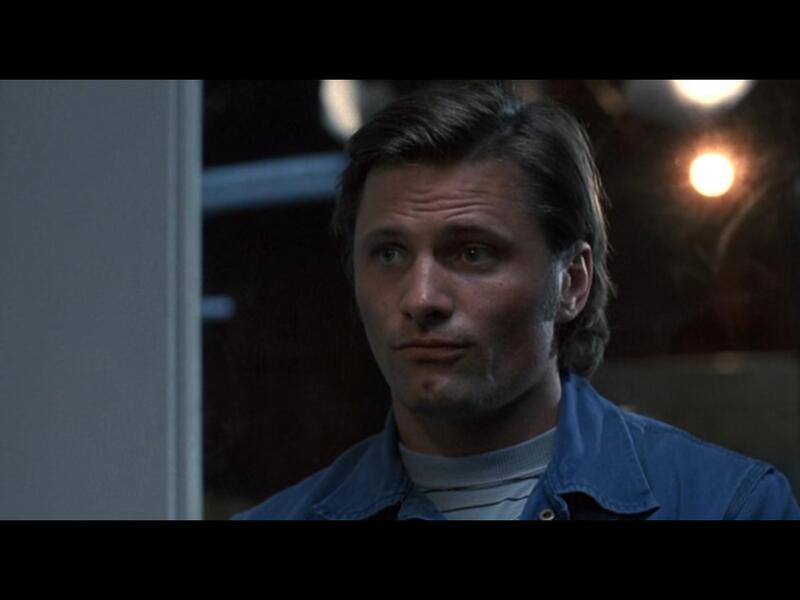
American Yakuza [Limited Edition]
What happens when being loyal to your job begins to feel personal? That’s an interesting focus in AMERICAN YAKUZA. This movie appears to be a standard undercover police story, yet it frequently returns to a more complex emotional problem beneath the shooting. It’s a film more concerned with the gradual loss of being sure of things than with surprise or size, though it isn’t always able, or determined enough, to work out that idea fully.
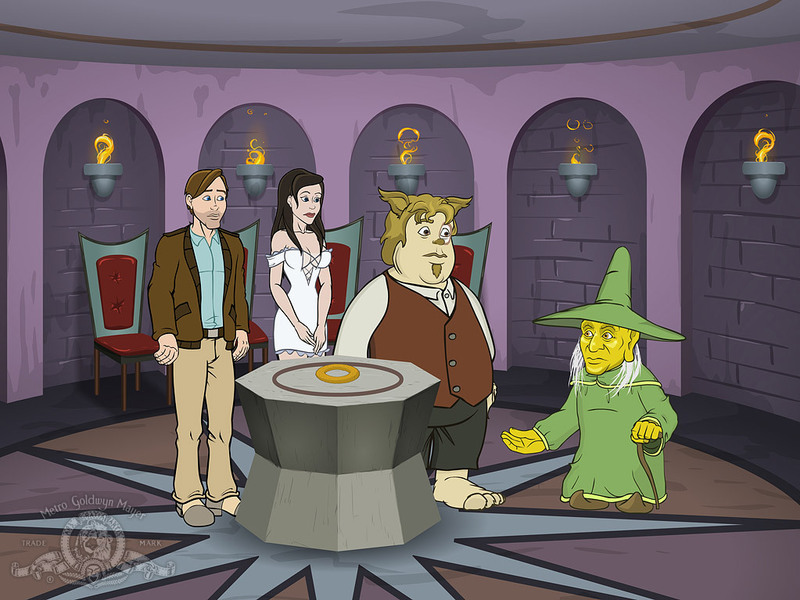
Mel Brooks' Spaceballs: The Animated Series (2-DVD Set)
There’s a specific kind of project that only exists because someone once made a joke about it, and then decades later decided to cash that joke in. MEL BROOKS’ SPACEBALLS: THE ANIMATED SERIES is exactly that. It’s not really a sequel anyone demanded (we’ll get that in 2027!), it isn’t an expansion of the lore that anyone needed, and it isn’t particularly interested in pretending otherwise. From the first moments on screen, the series feels less like a continuation of SPACEBALLS and more like a prolonged shrug that says, “Yeah, fine, you asked for more, here’s more.” That self-awareness ends up being both the show’s saving grace and I’d say what holds it back, but it knew exactly what it was.
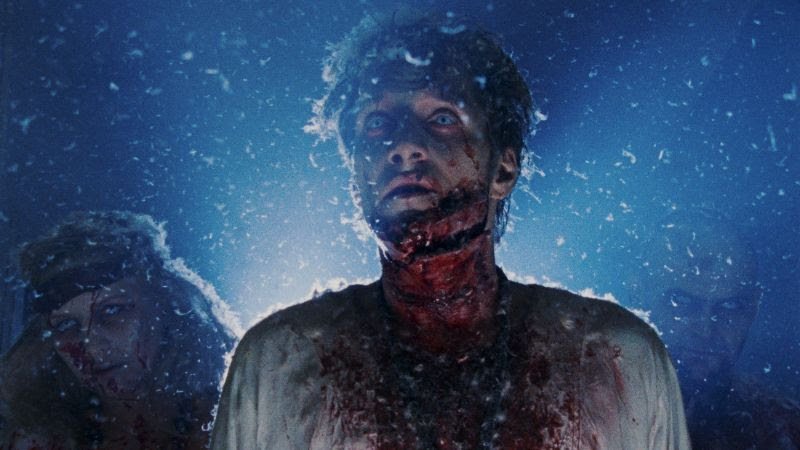
Garden of Love
What happens when misery won’t leave you, and the only thing the departed can grasp is revenge? GARDEN OF LOVE doesn’t approach this question with benevolence. It puts it in focus, then waits before ripping people apart. Olaf Ittenbach’s 2003 splatter film has long occupied a strange place among fans of extreme horror; some find it to be too much, while others accept it as operatic violence. Now, with Unearthed Films’ Blu-ray, it seems less like somebody letting themselves go, and more like a director deliberately getting better at what he does.

Temperatures are looking to rise again this week, making now a great time to talk about how to help care for your garden crops in the hot and dry times of summer. Late July through August can tend to be very hot and it is important that you are taking proper care of your crops to get them through when they are ready to be picked from the garden. Some plants can tolerate the heat better than others. When you consider that most plants are made up of 85 to 90 percent of water, it makes more sense why plants need extra attention in the heat.

Crop scouting is when fields are evaluated for pest and disease problems, or for checking in on growth progress. Scouting is important because if a problem of any kind is found in the field, it can be solved or managed as quickly as possible. This process is critical for farmers to grow their best crops and have the highest yields possible, which allows them to make the most profit. Crop scouting is a critical tool to protect a farmer’s investment in each field.

Like many holidays, the Fourth of July is connected to agriculture! In the spirit of celebrating our Independence Day this weekend, we can look at a quote about agriculture from Thomas Jefferson. The Founding Father and former president stated, “Agriculture.. is our wisest pursuit, because it will in the end contribute most to wealth, good morals, and happiness…”. Jefferson proclaimed the importance of agriculture in our country in a letter he wrote to George Washington.

All dairy products like milk and cheese start by the production and care of dairy cows on a dairy farm. Dairy farming is when farmers raise mother animals and use their milk to feed humans. Other dairy products than milk and cheese include butter, yogurt, ice cream and more. Byproducts from dairy farms are even used for nonfood purposes. Byproducts allow for an operation to produce more goods and be useful for as much as they possibly can.

When you look through a produce section at the grocery store, you will likely find both organic and nonorganic items for sale. To be labeled organic, foods must meet United States Department of Agriculture (USDA) standards. Companies or farmers can not just label something “organic” without meeting these standards. The USDA sets organic standards for crops and livestock, as well as the handling process.
